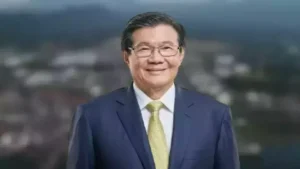Japan — In a country where personal integrity and humility are cornerstones of public life, even a single careless statement can upend a political career. This week, Japan’s Minister of Agriculture, Taku Etō, stepped down after making a tone-deaf remark that enraged citizens grappling with surging rice prices.
Speaking at a fundraising event, Etō admitted he had “never bought rice” because supporters donated enough for him to live off. The comment, made in jest or not, struck a nerve with the Japanese public, who have seen rice prices nearly double over the past year. In a nation where rice is not just food but part of cultural identity, the remark was viewed as detached and elitist.
Faced with mounting backlash, Etō resigned, stating:
“I asked myself whether it is appropriate for me to stay at the helm at a critical time for rice prices, and I concluded that it is not.”
While his departure may seem like a political misstep, it reflects a long-standing tradition in Japan: leaders are held to high ethical standards and are expected to accept responsibility when they fail to meet them.
Etō’s resignation is more than just a political event—it is a case study in the consequences of public perception and the weight of words in leadership. His decision to step down, rather than defend or deflect, has been interpreted by many as an honorable gesture, albeit forced by public pressure.
His successor, Shinjirō Koizumi, inherits the role amid growing economic strain and political distrust. The ongoing rice crisis—caused by poor harvests, speculative hoarding, and consumer panic following a national disaster warning—has tested public patience. The government has even resorted to importing rice from South Korea for the first time in 25 years.
For Prime Minister Shigeru Ishiba, this episode adds to an already difficult season. His administration’s approval ratings have hit a new low, and with upper house elections approaching, the need for credible and empathetic leadership has never been more urgent.
Etō’s fall from grace is a stark reminder: in public service, leadership is not only measured by performance, but also by perception—and sometimes, a single sentence can cost a career.











